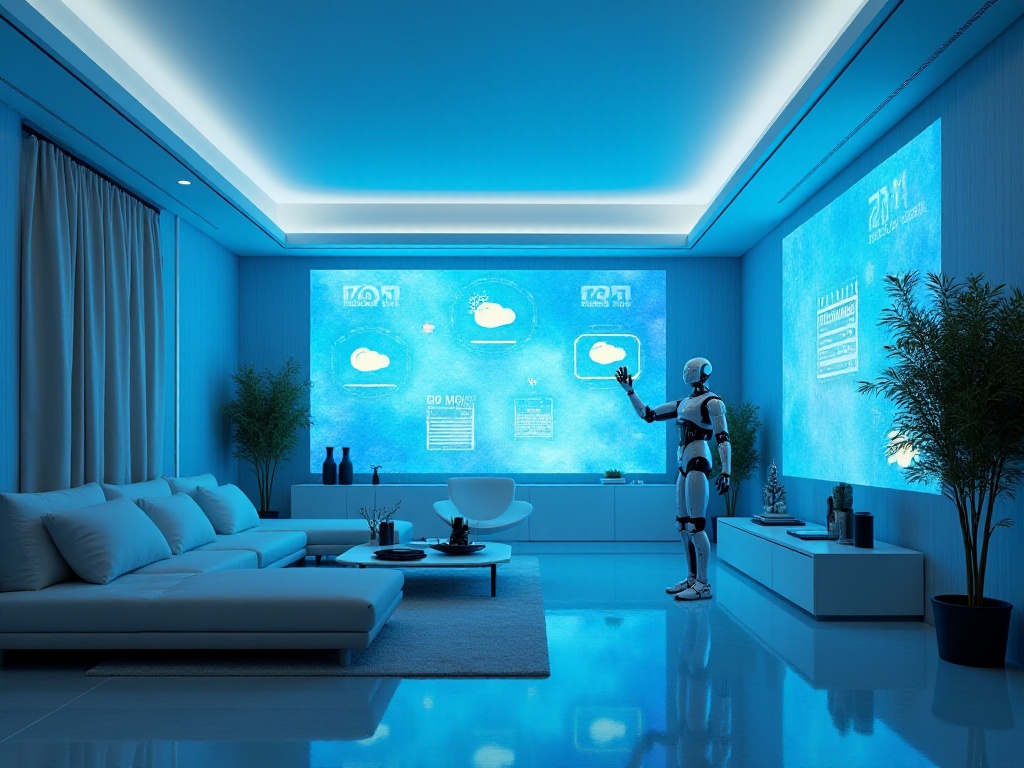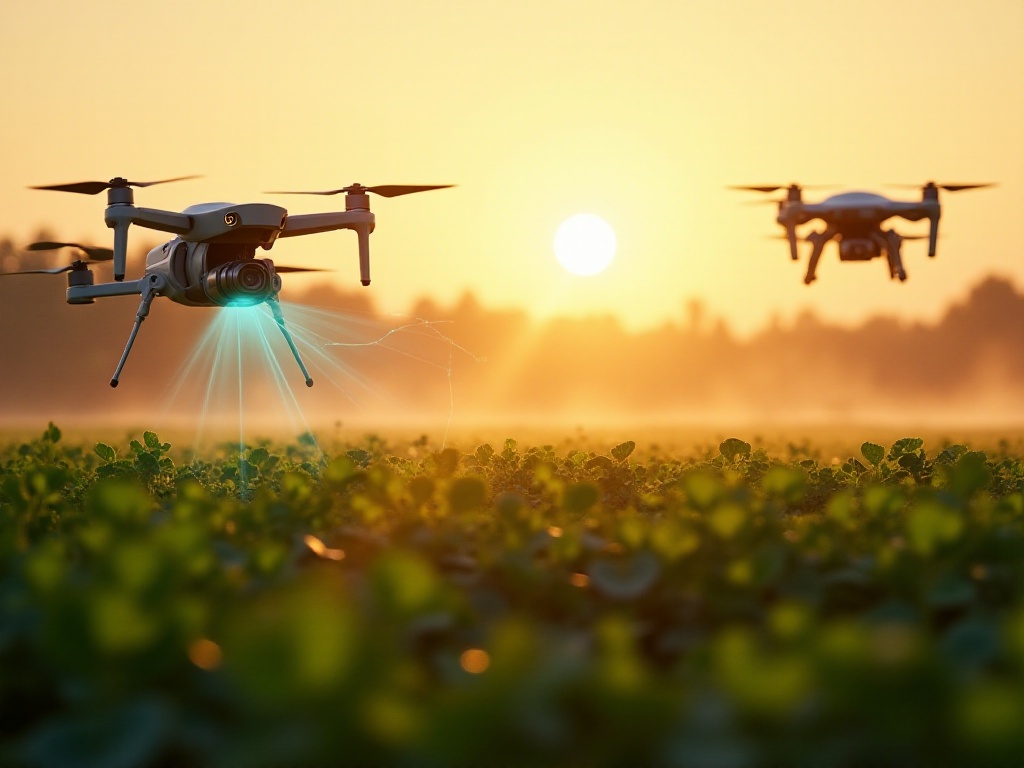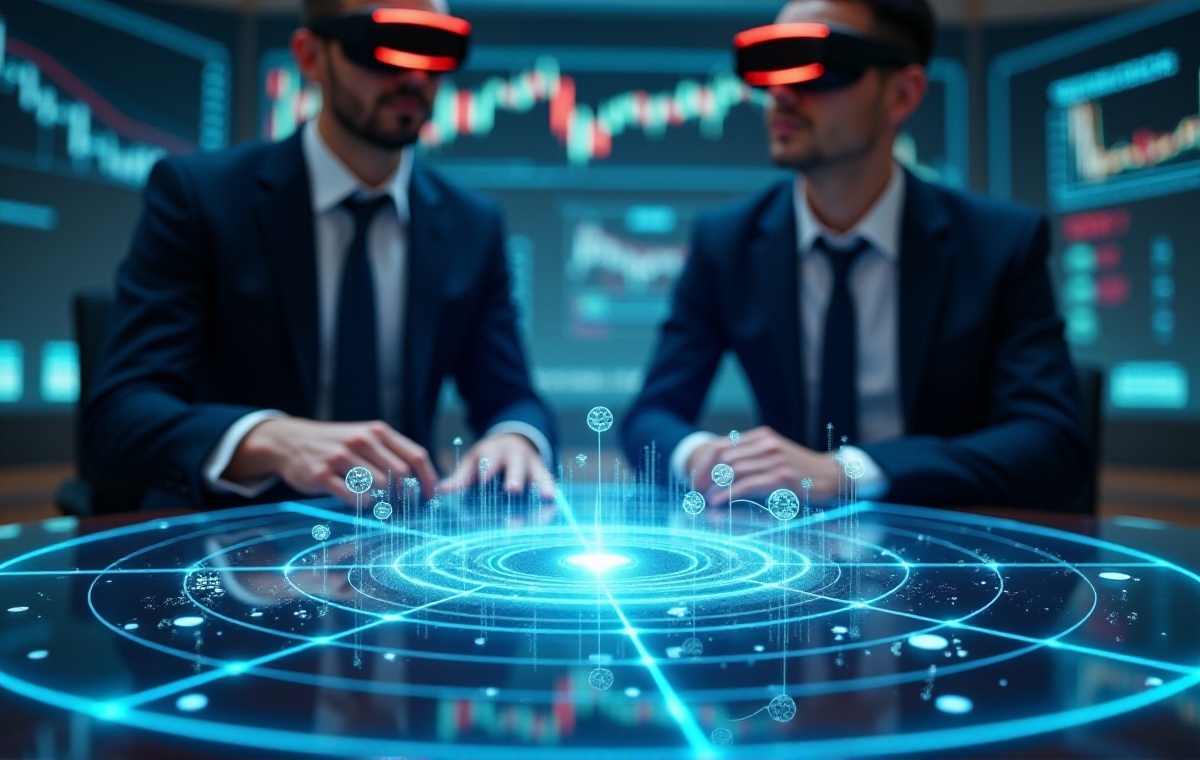Introduction
"AI is going to replace humans!" This phrase has been flooding my social media feed lately, and I can't help but laugh every time I see it. As someone who interacts with AI daily, I really want to say that AI isn't here to replace us at all - it's here to be our helpful assistant! Today, let me share my daily experiences with AI, which might change your perspective on it!
Daily Assistant
I remember when I first started using the smart voice assistant last year, I was quite awkward about it. Talking to the air felt strange, and I often felt silly. But now it's different. Every morning when I open my eyes, I habitually say "Good morning." Then my smart assistant tells me today's weather in a gentle voice, who I'm having lunch with, what time my afternoon meetings are, and even reminds me whether to bring an umbrella based on the weather.
To be honest, at first I thought it was just a fancy alarm clock. But as I used it more, I couldn't live without it. It's especially convenient when dealing with easily forgotten daily tasks. For example, I'm very forgetful and used to forget to pay utility bills, only remembering when the water or electricity got cut off - how embarrassing! Now it's better - the smart assistant reminds me a week before the bills are due, and automatically calculates the most suitable payment time to avoid my money "sleeping" in the bills.
When meeting friends on weekends, it's like my personal secretary. If I say "want to meet some friends for dinner this weekend," it immediately checks my schedule to see which time slots are free, then recommends several restaurants I might like based on my previous dining records. Even more thoughtfully, it considers traffic and weather factors to suggest the best departure time. Once on a rainy day, it specifically reminded me that the restaurant's underground parking was under maintenance and suggested changing locations - such attention to detail is really touching.
Moreover, it can help manage my shopping list. I just need to casually mention "the milk in the fridge is running low," and it automatically records it and reminds me the next time I go to the supermarket. Sometimes when I'm cooking and suddenly find I'm out of certain seasonings, I just say it out loud, and it records it. No more worrying about forgetting what to buy at the supermarket.
Another particularly useful feature is that it can automatically adjust reminder methods based on my daily routine. For instance, it knows I'm usually in a rush before morning meetings, so it gives me more buffer time; weekend reminders are much gentler and less urgent. This kind of intelligence that adapts to scenarios and contexts really makes me feel the warmth of technology.

Smart Home
Speaking of smart homes, the smart thermostat definitely impressed me the most. When I first bought it, I thought it was just an air conditioner that could be controlled remotely. But it completely changed my perception. This thing is like a butler who can read the room, completely understanding my daily routine and temperature preferences.
It noticed I go to bed at 10:30 PM sharp, so it starts gradually adjusting the room temperature at 10 PM. By the time I lie down, the temperature has already reached the perfect 23 degrees for sleeping. It's particularly clever, knowing I like thick blankets when sleeping, so it keeps the temperature slightly lower. Mornings are even more thoughtful - it starts slowly raising the temperature at 6:45 AM, letting me wake up naturally in a warm environment, no more shivering when getting up in winter.
What amazes me most is its learning ability. At first, I often had to adjust the temperature manually, but after a month of use, it completely mastered my temperature preferences. For example, it noticed I prefer a cooler environment after exercising, so when I open my workout app, it predicts I might exercise and adjusts the temperature lower in advance. On rainy days, it automatically raises the temperature a bit because it noticed I tend to feel colder on cloudy days.
As for energy saving, this was even more surprising. After three months, my electricity bill dropped by 20%. It precisely calculates the most energy-efficient control plan based on various factors like weather, outdoor temperature, and sun angle. For example, on sunny afternoons, it automatically turns off unnecessary lighting; when the weather turns cool, it reminds me to turn off air conditioning in rarely used rooms. These small details add up to significant savings on the electricity bill.
It's not just temperature control - the entire smart home system seems to have its own thinking. When I'm watching movies, it automatically dims the lights to create a theater-like atmosphere; when I'm cooking in the kitchen, it automatically turns on the range hood and plays my favorite music; before bedtime, it checks if all appliances are turned off and doors and windows are locked, letting me sleep peacefully.

Shopping Experience
Talking about shopping, today's AI is truly a mind reader! Last year's Singles' Day shopping experience made me truly feel what "smart recommendations" means. It's not just those annoying "if you bought this, buy that" simple recommendations, but truly understanding my lifestyle and shopping habits.
For instance, it noticed I particularly like browsing sports equipment on weekend mornings, so it sends me relevant discount information during these time slots. And the recommendations are always precise, never suggesting products that don't fit or don't match my style. Once when I was looking at running shoes, it directly filtered out suitable sizes and types for me, because it learned from my previous purchase records that I prefer softer cushioned running shoes and have wider feet.
Even more impressive is how it recommends equipment based on my exercise records. For example, when it notices I've been recording runs on my sports app, it recommends anti-chafing running socks or energy drinks. During rainy seasons, it thoughtfully recommends waterproof running gear.
It's also great at price comparison. It automatically tracks price changes for items I've saved and alerts me when prices are lowest. And it's not just looking at prices - it considers factors like cost-effectiveness, reviews, and shipping speed to give the best purchase recommendations. Last Singles' Day, thanks to its reminder, I grabbed a really good deal on a smart bracelet.

Security Protection
When it comes to AI's most reliable aspect, security protection must be mentioned. Now every time I use mobile banking, facial recognition is required, and this recognition technology is quite powerful - it can accurately identify me even when I'm wearing a mask or in low light at night. Most amazingly, it can distinguish between real people and photos, so even if someone tries to fool it with my photo, it won't work.
Last year I almost got scammed, but thanks to the bank's AI system. Late one night around 11 PM, I suddenly received a large transfer request. Normally I rarely make large transfers at this time, and the AI system immediately detected this anomaly, not only blocking the transaction but also sending me a risk alert. Later I found out someone had stolen my account information and tried to transfer my money.
According to bank statistics, since implementing the AI risk control system, fraud cases have decreased by over 60%. This data is really reassuring and gives me more confidence in digital payments. Now with every online payment, the system monitors transaction behavior in real-time, immediately warning of any anomalies. For example, large purchases in unfamiliar areas, frequent small transfers, or suspicious operations at unusual times all trigger security mechanisms.

Healthcare
In healthcare, AI's performance is even more touching. Last year when I took my grandmother for a checkup, the hospital's AI-assisted diagnostic system proved invaluable. Traditional image examinations might miss details due to doctors being busy or tired, but the AI system maintains high vigilance at all times, precisely identifying abnormalities from massive medical images.
My grandmother's case is particularly typical. During a routine checkup, the AI system detected an early-stage abnormality while analyzing her chest X-ray, a timely discovery that helped her avoid the risk of condition deterioration. The doctor said this system's diagnostic accuracy exceeds 95%, nearly 30% higher than purely manual interpretation - this data is really impressive.
It's not just in major hospitals; some community clinics have also started using AI-assisted diagnostic systems. This is a lifesaver for grassroots medical institutions lacking professional doctors. The system can help doctors quickly screen common diseases and provide diagnostic suggestions, greatly improving the quality of basic medical services.

Conclusion
Looking back now, AI has truly changed our way of life, but it's definitely not some scary "replacement" - it's a thoughtful helper. It's like an assistant that never tires, quietly helping us in various fields, making our lives easier, safer, and more efficient.
Actually, AI is an extension and amplifier of human wisdom. It's not here to replace us, but to help us. Through collaboration with AI, we can spend more time and energy on things that truly require human creativity and emotion.
Do you have any experiences with using AI? Welcome to share your stories in the comments section, let's discuss together how to better use this intelligent assistant to make life more beautiful!








